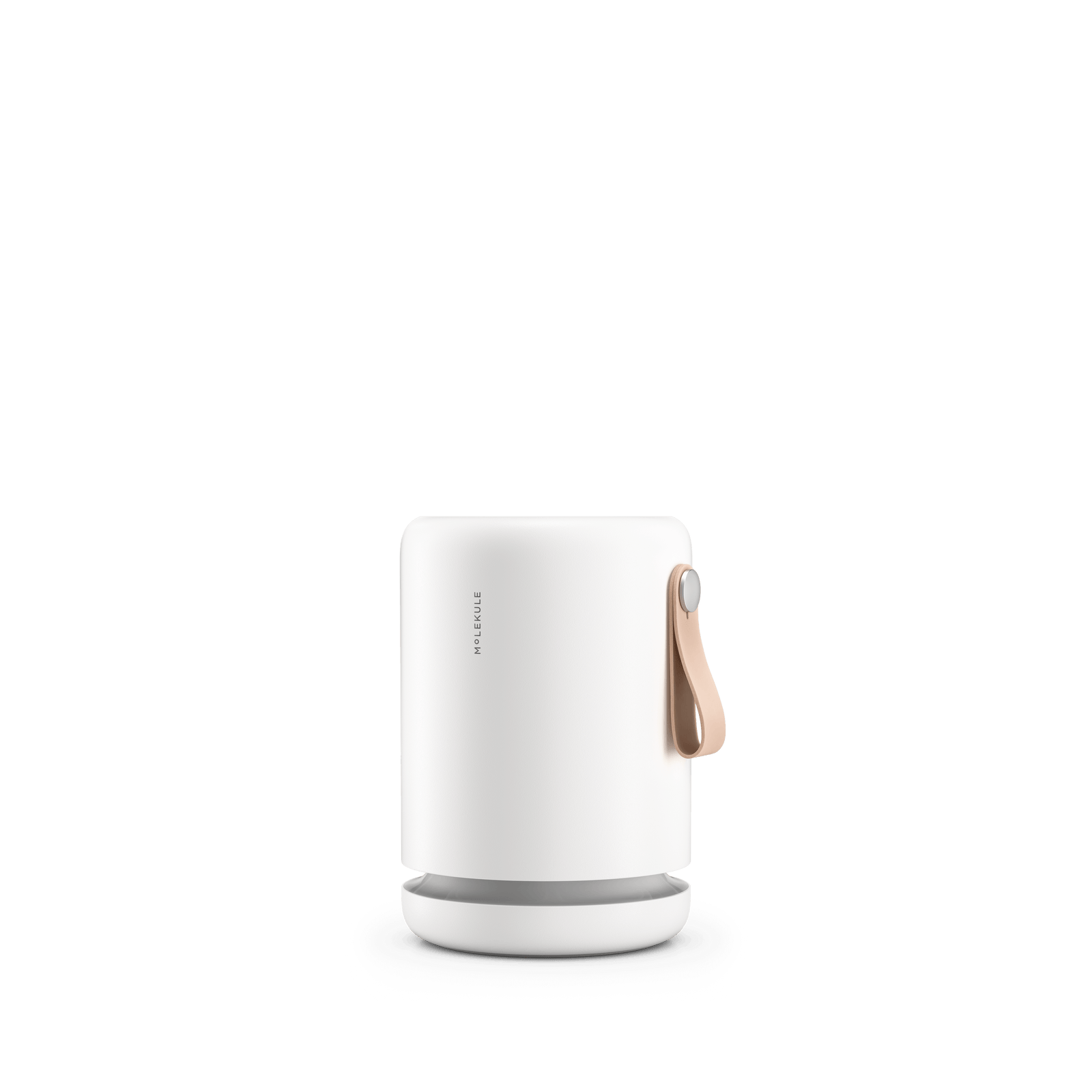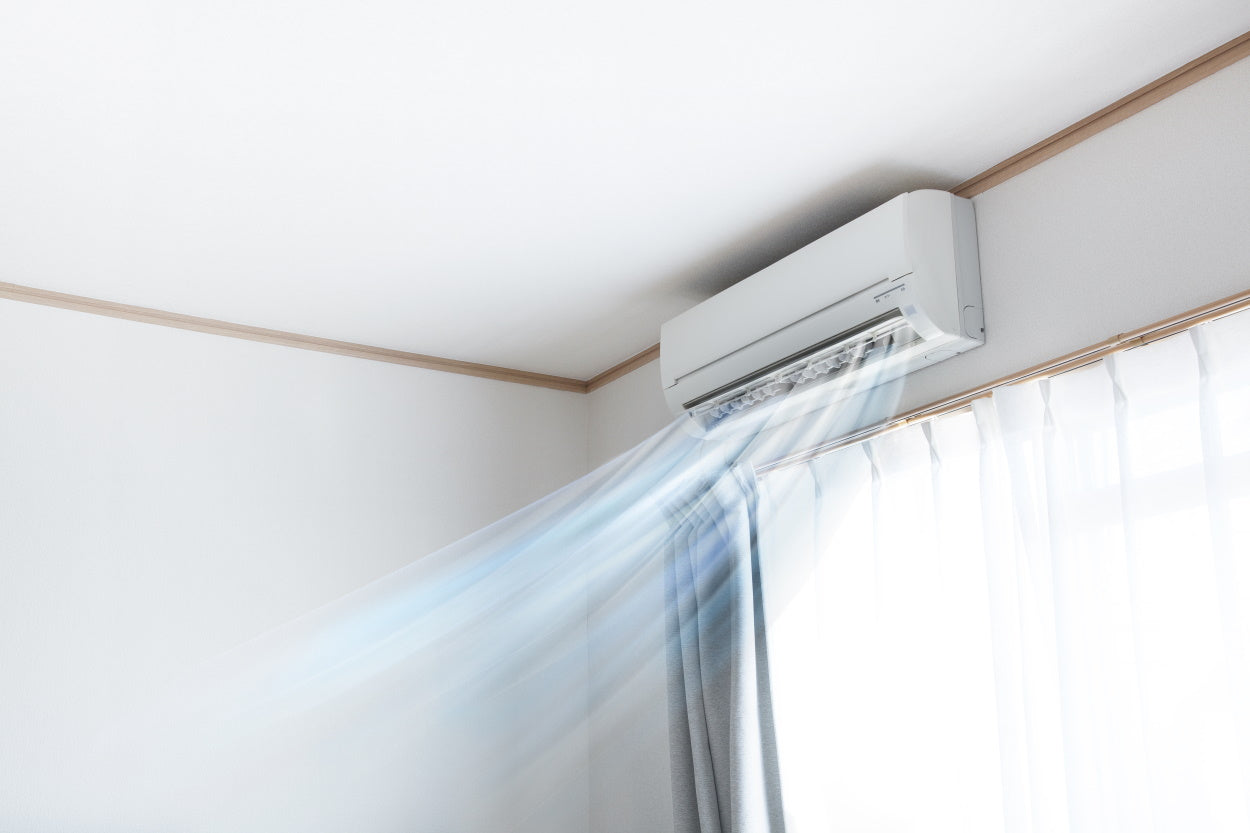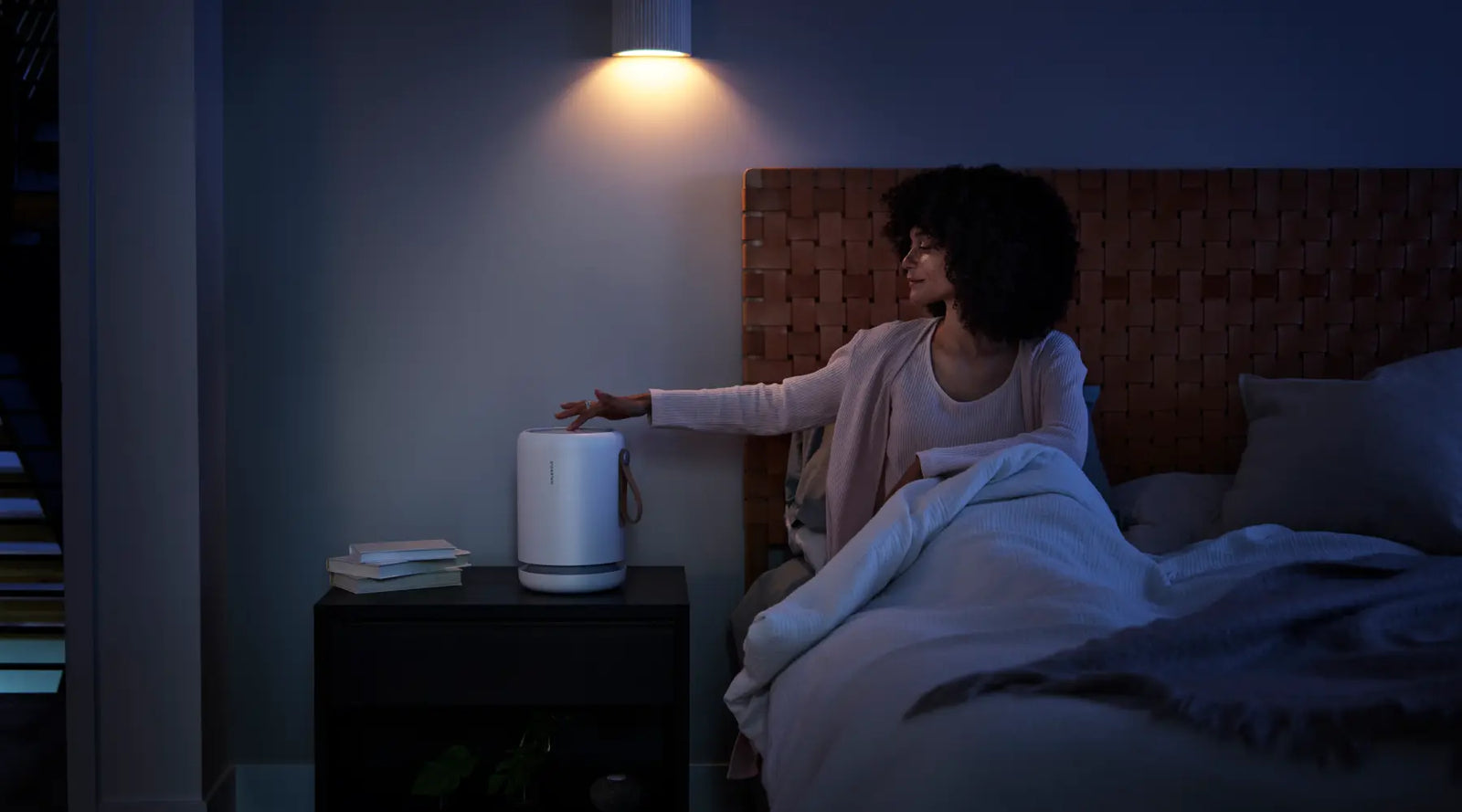Air conditioners are easy to take for granted. But now that parts of the country are increasingly experiencing record-shattering heat waves, they can literally be a life-saver. Cooling power aside, air conditioners can also have some surprisingly negative effects on the air quality inside your home. Read on for a full explanation of why this is the case and what you can do to decrease harmful indoor air pollution from air conditioners.
How do air conditioners work?
There are three main types of household air conditioners: central air conditioners, window air conditioner units and portable air conditioners. Depending on the design of your home and the climate where you live, you may use one or more of these.
Central air conditioners are part of your home’s heating, ventilation and air conditioning (HVAC) system. They use one large condensing unit, typically located outside, to cool off all the rooms in your home. Central air conditioners also contain one or more fans that push cool air through the air ducts and into your home through vents on the ceiling, walls or floors.
Window air conditioning units contain the same cooling components as central air conditioners, but all the parts are contained within the individual unit. Window units tend to be the cheapest and most energy-efficient type of air conditioner. They can be used in any room with unobstructed slide-to-open windows, and you can move them from one room to another.
Note: Though central air conditioners and window units have components that are outside, neither option typically pulls outside air into the home. Instead, like portable air conditioners, they circulate the air already in your home, passing it over cooling coils before pushing it out through the vents.
Portable air conditioners are freestanding units that can easily be moved from room to room. You still need to place them near a window because they contain an exhaust hose that needs to be vented to the outdoors. If the hose cannot be vented outdoors, it will release hot air into the home and cancel out the cooling effects of the air conditioner.
Can air conditioner filters trap pollutants?
Air conditioners can increase air circulation and make your indoor air feel fresh by cooling it down and decreasing humidity levels. However, they are not made to be a catch-all for the airborne pollutants in your home.
Indoor air pollution can come from many sources, such as pollen, mold, wildfire smoke, pet dander, cleaning chemicals and cooking byproducts. These pollutants can be either particles or gases, such as volatile organic compounds (VOCs). Since most people spend the majority of their time indoors, it is important to know what you can do to protect your indoor air quality.
All air conditioners, whether they are a part of your HVAC system or installed separately, should include some form of filtration technology. This filter should trap some larger airborne pollutants, such as dust and pet hair. The percentage and type of pollutants trapped by the filter will depend on its MERV rating.
MERV stands for minimum efficiency reporting value, and it is a measure of a filter’s ability to capture larger particles between 0.3 and 10 microns. The Environmental Protection Agency (EPA) recommends upgrading the filter in your HVAC system to one with a MERV 13 rating, or as high as your system’s fan and filter slot will allow. These filters should be able to trap smaller particles, including viruses.
Note: The filters in portable air conditioners and window units typically cannot be upgraded without modifying the unit.
Are there downsides to upgrading your HVAC filter?
Upgrading your HVAC system’s filter to one with a MERV 13 rating may seem like a no-brainer, but unfortunately it is not an option for certain units. The more robust a filter is, the harder your air conditioner has to work to blow air through it. In some cases, upgrading to a higher-efficiency air filter may significantly decrease your air conditioner’s ability to cool off your home. You may need to consult with an HVAC technician to determine the highest efficiency filter that your system can handle.
Another drawback to air conditioner filters is that they are only effective while the air conditioner is on, which is usually less than 25% of the day. To get more air filtration, you would have to leave your air conditioner running for longer periods, which can increase your electricity costs and decrease the humidity control in your home. However, you should run air purifiers all day.
In short, while some HVAC systems are able to use air filters capable of trapping smaller pollution particles, they can only do so for a small portion of the day.
How can air conditioners impact indoor air quality?
While it is true that certain types of air conditioners are able to filter larger particles from the air in your home, they can also negatively impact your indoor air quality over time. If you do not regularly clean and perform maintenance on your air conditioner, dirty units can actually start releasing pollutants into the air. There are two primary reasons why this can occur: a clogged filter and poor moisture control.
No matter which type of air conditioner you have, you will need to clean or replace your air filters according to the manufacturer’s recommendations. If the filter becomes dirty, it will block the airflow of your unit. This reduces your air conditioner’s ability to pump cool air into your home. It also increases the likelihood that pollutants may become dislodged from the filter and reintroduced into your indoor air.
Moisture control is also essential because it can prevent mold growth in your HVAC system or air conditioning unit. Moisture causes mold, which occurs in all homes to some degree. When that mold growth is left unchecked, it can lead to allergic reactions, asthma attacks and other respiratory symptoms. Though you may not be able to completely eliminate the presence of microscopic mold spores in your home, it is still worthwhile to try to keep their growth from reaching levels that can negatively impact your health.
To keep your air conditioner clean and prevent mold growth, you can:
- Make sure your air conditioner’s drainage system is free from clogs or flooding;
- Check that your window units and portable air conditioning exhaust hoses are fitted securely to your window without room for moisture to get in;
- Use a dry cloth or vacuum instead of water to clean your air conditioner;
- Clean your grates and air returns regularly.
Should you still open your windows when you have an air conditioner?
If your home has air conditioning, you probably open your windows less than you would if you did not have another way to cool your indoor air. Though keeping your windows closed can help keep the cool air in and reduce the workload of your air conditioner, it can also allow indoor pollutants to build up to levels much higher than those found outdoors.
To combat this, try opening your windows more on days with good outdoor air quality (you can check your local air quality on AirNow.gov). Doing this can help replace polluted indoor air with fresh air from outside.
What is the difference between air conditioners and air purifiers?
Though air purifiers and air conditioners have some components in common, such as fans, filters and vents, their core purposes are different. Air conditioners are designed to cool the air in your home and help you maintain a specific indoor temperature. Air purifiers are made to improve indoor air quality — they have no control over the temperature in your home.
Unlike air conditioners, air purifiers are made to be on twenty-four hours a day. This allows them to continuously turn over the air in a room, removing pollutants as the air passes through their filters. Depending on the type of filter in your air purifier, it may be effective against particulate matter, gaseous pollutants or both.
Like some HVAC systems, air purifiers may also use HEPA filters to trap airborne particle pollution. However, they may not be effective against gaseous pollutants, such as VOCs. Carbon filters, another technology commonly found in air purifiers, have the opposite result. They can capture harmful gases in the air but do nothing about particle pollution.
Photo Electrochemical Oxidation (PECO) technology, found only in Molekule air purifiers, can effectively capture both particulate matter and gaseous pollutants. It even goes a step further, destroying most types of pollution — even viruses and bacteria — at the molecular level.
Air conditioners can make the air in your home feel cooler and more refreshing, but they are not an effective way to remove indoor air pollution in and of themselves. That is where a good air purifier fits in. Together, your air purifier and air conditioner can help make your home a clean and comfortable place even during the hottest months of the year.












